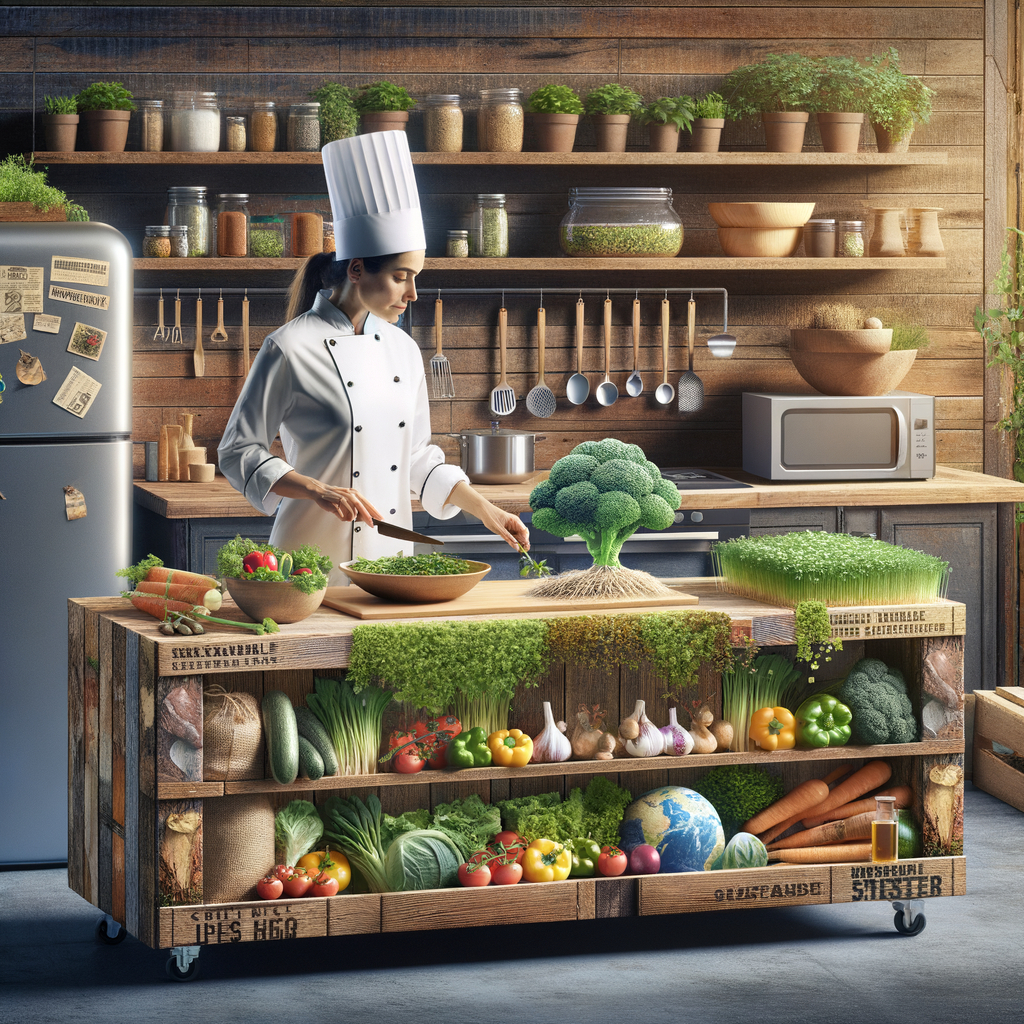Physical Address
304 North Cardinal St.
Dorchester Center, MA 02124
Physical Address
304 North Cardinal St.
Dorchester Center, MA 02124

With growing awareness about environmental issues and the impact of our lifestyle choices, sustainable cooking has become a hot topic in culinary circles. But what exactly is sustainable cooking? It’s a method that emphasises minimising waste, using locally sourced ingredients, and reducing energy consumption. This article delves into the art of sustainable cooking, providing practical tips on how you can adopt this eco-friendly practice at home.
Sustainable cooking is more than just a trend; it’s a philosophy that encourages respect for nature and its resources. It promotes mindful consumption by considering where food comes from, how it’s grown or raised, and how it’s prepared. The goal is to reduce our carbon footprint while still enjoying delicious meals.
A significant aspect of sustainable cooking involves sourcing local ingredients. Buying locally not only supports your community’s farmers but also reduces carbon emissions associated with transporting food over long distances. Visit your local farmers’ market or join a community-supported agriculture (CSA) program to get fresh, seasonal produce directly from growers in your area.
In Australia alone, we throw away nearly 7.3 million tonnes of food every year — enough to fill over 13,000 Olympic swimming pools! One way to combat this problem is by adopting a ‘root-to-stem’ or ‘nose-to-tail’ approach in the kitchen. This means utilising all parts of an animal or vegetable rather than discarding certain parts as waste.
Sustainable cooking also focuses on energy efficiency. Simple practices like covering pots while boiling water, using appropriate-sized burners for your pans, and keeping the oven door closed as much as possible can significantly reduce energy use. Additionally, consider using energy-efficient appliances or cooking methods like slow cookers, pressure cookers, or solar ovens.
Producing meat, particularly beef and lamb, has a much higher environmental impact compared to growing fruits, vegetables, and grains. By incorporating more plant-based meals into your diet, you can drastically cut your carbon footprint. This doesn’t mean you have to go fully vegan; even one meat-free day per week can make a difference.
Cooking in bulk and preserving food are other effective ways of practising sustainable cooking. By preparing large quantities of food at once, you save energy that would otherwise be used for multiple cooking sessions. Moreover, preserving seasonal produce through methods like pickling or canning allows you to enjoy them throughout the year without resorting to imported goods.
Lastly, sustainable cooking involves minimising the use of single-use items in the kitchen. Replace plastic cling wrap with beeswax wraps or reusable silicone lids. Opt for cloth napkins over paper ones and glass containers instead of plastic bags for storage.
The art of sustainable cooking not only helps protect our environment but also offers numerous personal benefits. It encourages healthier eating habits by promoting whole foods over processed ones. It also fosters creativity in the kitchen as you find innovative ways to utilise every part of your ingredients.
Sustainable cooking is an ongoing journey rather than a destination. Every small step we take towards this practice contributes to a larger global effort in protecting our planet’s resources for future generations.
The art of sustainable cooking is a transformative practice that benefits both our planet and personal health. By choosing locally sourced ingredients, reducing waste, and being mindful of our energy consumption, we can all contribute to a more sustainable future. So next time you step into your kitchen, remember that every meal is an opportunity to make a difference.